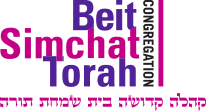
The Burden of a Witness
וַיִּשְׁמַ֞ע יִתְר֨וֹ כֹהֵ֤ן מִדְיָן֙ חֹתֵ֣ן מֹשֶׁ֔ה אֵת֩ כׇּל־אֲשֶׁ֨ר עָשָׂ֤ה אֱלֹקים֙ לְמֹשֶׁ֔ה וּלְיִשְׂרָאֵ֖ל עַמּ֑וֹ כִּֽי־הוֹצִ֧יא ה אֶת־יִשְׂרָאֵ֖ל מִמִּצְרָֽיִם׃
Jethro, the minister of Midian, the father-in-law of Moses, heard all that God did to Moses and to Israel, God’s people – that Hashem took Israel out of Egypt.
Exodus 18:1
Jethro wasn’t the only one to hear about the experiences of the Israelites, but he was the only one to do something about it. For Jethro, bearing witness to their struggles wasn’t a voyeuristic act of curiosity, but a transformative act of internalization. Commentators, including Rabbi Abraham Simcha Horvietz, point out that the shift in Jethro’s position, from a high priest of idolatry to Moses’ closest advisor, is reflected in a numerical allusion. He went from being the ultimate outsider – חוץ, sharing the numerical value of the word “מִדְיָן֙ – Midian,” to an insider – ”תוך,” alluded to in the numerical value equalling “וַיִּשְׁמַ֞ע – and he heard.”1
Jethro didn’t just hear with his ears. He also heard with his heart. Jethro accepted upon himself the yoke of heaven, the way that we are instructed to when we say the Shema (literally to hear), and committed to change the reality of the world through a greater unity with God (echad). Rashi comments that Jethro’s name is changed from Jeter – יתר, with the addition of the letter vuv at the end, in recognition of his acceptance of Jewish Peoplehood.
While the letter vuv at the beginning of a word is the prefix “and”, a vuv at the end of a word makes it possessive, as in “money – כסף” becomes “his money – כספוֹ.” Jethro, יתר-ו, felt obligated to add, יתר-ו, goodness to the world and took ownership of it.2 When we experience the brokenness of humanity, and feel responsible to fix it, expanding and connecting to greater holiness is a good first response.
Jethro says two distinct things: a complaint and solution. He isn’t praised for bringing an awareness of a problem to Moses -“The thing you are doing is not right…3 you cannot do it alone,”4 as anyone can kvetch. What’s special is in offering a way to fix it: “You shall also seek out…5 make it easier for yourself by letting them share the burden with you.”6
Allyship is, by its very nature, an act of giving and taking. Contributing to something bigger than ourselves, paradoxically, enhances us. Jethro, who is also called “Chaver,”7 because he allied with God, merited the letter “vuv”,8 from God’s ineffable name י-ה-ו-ה, as a reflection of his connectedness, and subsequent conversion,9 to the Jewish People.
Perhaps Jethro deserved to have the story of Kabbalas HaTorah – accepting the Torah at Mount Sinai – in the Torah portion named for him, because he accepted the responsibility to connect to God, the Torah, and the Jewish people, just as the Israelites did when they transitioned from Hebrews to Jews while receiving the Ten Commandments.
The number “three” represents chebor – bonding, in rabbinic literature,10 and also corresponds to the third sefira or emanation 11 “dat – דעת”, which reinforces a union.12 It may be for this reason that the word for convert, in Hebrew “גר -ger,” is formed from the third letter from the beginning and end of the Hebrew Alphabet.13 There are three commandments14 associated with conversion,15 and in addition to the 613 mitzvot, add up to 616, which is the numerical value of Jethro’s name in Hebrew Yisro – יתרו.
Attaching to the Israelites also allowed Jethro to celebrate their experiences of goodness. The verse16 says “וַיִּ֣חַדְּ יִתְר֔וֹ” and Rashi explains “וַיִּ֣חַדְּ”, which literally means “and he became one with”, as “וישמח – and he rejoiced”. Solidarity, in difficult times, isn’t just about relationship building, it actually relieves the hardship and causes the situation to improve.
The Rebbe Reb Bunim of Peshischa17 contrasts the limited nature of human judges, unable to grasp all of the repercussions of their ruling, with God’s ability to take into consideration the total impact on everyone affected. He explains that this is what King David means in describing how “the judgments of the Lord are true, righteous altogether – מִֽשְׁפְּטֵי־יְהוָ֥ה אֱמֶ֑ת צָֽדְק֥וּ יַחְדָּֽו.“ 18” To such an extent, that the more we feel pain for the person who is suffering, the less torment they will have to experience.19
Jethro reminds us to take responsibility for one another and to experience each other’s joys and pain. It is only when we join together in this manner that we will succeed in healing this broken world.
1 See Chamra Tava.
2 See Tiyul B’Pardes for a similar approach.
3 Exodus 18:17.
4 Exodus 18:18.
5 Exodus 18:21.
6 Exodus 18:22.
7 See Rashi.
8 Which acts grammatically as the conjunction “and”.
9 See Midrash Tanchuma, Yisro 1:3.
10 See Maharal.
11 See Isha Bracha, page 443, for an explanation of how the splitting of the sea and Amalak relate to Das and Emes.
12 As in Genesis 4:1 “And Adam knew Eve – וְהָ֣אָדָ֔ם יָדַ֖ע אֶת־חַוָּ֣ה.”
13 See Toras HaRemez.
14 An offering (when applicable), ritual immersion, and circumcision (when applicable).
15 See Gur Aryeh. Circumcision, mikvah, and an offering.
16 Exodus 18:9.
17 Simcha Bunim Bonhardt of Peshischa, c. 1765 – September 4, 1827.
18 Psalms 19:10.
19 See Matnas Chaim, volume one.
